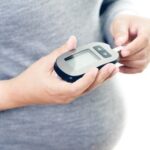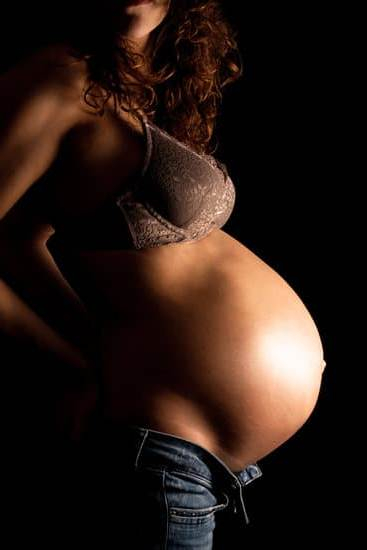Are you expecting and looking for a comprehensive pregnancy nutrition checklist PDF to ensure a healthy diet for you and your baby? Nutrition plays a crucial role in the development and well-being of both mother and child during pregnancy. It is important to understand the key nutrients needed for a healthy pregnancy, as well as tips for creating and following a pregnancy nutrition checklist.
During pregnancy, it is essential to maintain a balanced diet that provides all the necessary nutrients for the health and development of the fetus. A well-planned nutrition checklist can help expecting mothers meet their dietary needs and ensure optimal health for both themselves and their babies. Understanding the importance of proper nutrition during this critical time is vital in promoting a successful and healthy pregnancy.
Creating a pregnancy nutrition checklist involves identifying key nutrients necessary for prenatal health, planning meals that incorporate these nutrients, and making conscious choices about food intake. This checklist serves as a guide to ensure that expecting mothers are consuming a variety of nutrient-dense foods essential for their overall well-being throughout pregnancy.
In this article, we will explore the importance of a balanced diet during pregnancy, discuss key nutrients needed, provide tips for creating and following a pregnancy nutrition checklist, debunk common myths surrounding pregnancy nutrition, and offer resources for further reading on this topic.
Importance of a Balanced Diet During Pregnancy
During pregnancy, a woman’s body goes through numerous changes, including an increased need for nutrients to support the growth and development of the baby. It is essential for expectant mothers to maintain a balanced diet to ensure both their own health and that of their child.
Key Nutrients for a Healthy Pregnancy:
- Folic Acid: Essential for preventing birth defects such as spina bifida
- Iron: Important for the production of red blood cells and prevention of anemia
- Calcium: Vital for the development of the baby’s bones and teeth
- Protein: Necessary for the growth of maternal tissues and fetal development
- Omega-3 Fatty Acids: Important for brain and vision development in the baby
Creating a Pregnancy Nutrition Checklist:
- Consume a variety of fruits, vegetables, whole grains, lean proteins, and dairy products.
- Ensure that you are getting enough folic acid, iron, calcium, protein, and omega-3 fatty acids in your diet.
- Stay hydrated by drinking plenty of water throughout the day.
- Limit processed foods, sugary snacks, and high-fat foods.
Following these guidelines can help expectant mothers stay on track with their nutrition during pregnancy. A helpful tool to aid in this effort is a pregnancy nutrition checklist PDF which can serve as a daily guide to ensure that all necessary nutrients are being consumed in adequate amounts throughout pregnancy.
Key Nutrients for a Healthy Pregnancy
During pregnancy, it is crucial to consume a well-rounded diet that provides all the necessary nutrients for both the mother and the developing baby. Some key nutrients that are essential for a healthy pregnancy include folic acid, iron, calcium, and omega-3 fatty acids.
Folic acid is important for preventing neural tube defects in the baby, while iron helps in the production of hemoglobin to support the increased blood volume during pregnancy. Calcium is necessary for bone development in the baby, and omega-3 fatty acids aid in brain and eye development.
In addition to these key nutrients, pregnant women should also ensure they are getting enough protein, vitamin D, and vitamin C in their diet. Protein is essential for the growth of fetal tissue, including the brain, while vitamin D helps in the absorption of calcium and phosphorus. Vitamin C is important for healthy skin, bones, and connective tissue.
To help pregnant women keep track of their nutrient intake and ensure they are meeting their daily requirements, a pregnancy nutrition checklist can be incredibly helpful. This checklist will outline specific foods that contain these essential nutrients and provide guidance on portion sizes and recommended daily intake levels.
| Nutrient | Importance |
|---|---|
| Folic Acid | Prevents neural tube defects |
| Iron | Production of hemoglobin for increased blood volume |
| Calcium | Bone development in the baby |
Creating a Pregnancy Nutrition Checklist
During pregnancy, it’s essential to ensure that you are eating a balanced diet that provides all the necessary nutrients for both you and your baby. One way to stay on track with your nutrition goals is by creating a pregnancy nutrition checklist. This checklist can help you monitor your daily intake of essential nutrients, ensure that you are eating a variety of foods, and make any necessary changes to your diet.
Identifying Essential Nutrients
The first step in creating a pregnancy nutrition checklist is to identify the essential nutrients that you need during pregnancy. These include folic acid, iron, calcium, vitamin D, protein, and omega-3 fatty acids. Each of these nutrients plays a crucial role in supporting the healthy development of your baby and maintaining your overall health during pregnancy.
Utilizing Portion Control and Food Groups
Once you have identified the key nutrients needed during pregnancy, the next step is to break down your checklist into food groups and portion sizes. Include a variety of fruits, vegetables, whole grains, lean proteins, and dairy or dairy alternatives. Be mindful of portion control to avoid overeating or not consuming enough of each food group.
Making Adjustments as Needed
It’s important to remember that every woman’s nutritional needs during pregnancy are unique. As such, it’s crucial to be flexible with your checklist and make adjustments as needed. For example, if you have specific dietary restrictions or experience food aversions during pregnancy, consider making modifications to accommodate these challenges while still meeting your nutritional needs.
By creating a comprehensive pregnancy nutrition checklist tailored to your individual needs and regularly monitoring your daily intake of essential nutrients, you can ensure that both you and your baby are getting the necessary nutrition for a healthy pregnancy. To help get started with creating your own checklist based on these guidelines, consult our sample Pregnancy Nutrition Checklist PDF for reference.
Tips for Following a Pregnancy Nutrition Checklist
During pregnancy, it is crucial to pay attention to your nutrition to ensure the health and development of both you and your baby. Following a pregnancy nutrition checklist can help you stay on track and meet the necessary dietary requirements for this special time in your life. Here are some tips for following a pregnancy nutrition checklist:
- Listen to Your Body: Pay attention to your body’s signals and cravings. If you’re craving certain foods, it could be your body’s way of telling you what nutrients it needs.
- Stay Hydrated: Drink plenty of water throughout the day to support healthy digestion, maintain amniotic fluid levels, and prevent dehydration.
- Eat Regular Meals: Aim to eat small meals or snacks every few hours to keep your energy levels stable and prevent nausea or heartburn.
- Include a Variety of Foods: Make sure your diet includes a wide variety of fruits, vegetables, whole grains, lean proteins, and healthy fats to get all the necessary nutrients for you and your baby.
- Avoid Certain Foods: Stay away from unpasteurized dairy products, undercooked meats, raw fish, and high-mercury fish that can be harmful during pregnancy.
Following these tips will help you stay on track with your pregnancy nutrition checklist and ensure that you are getting the essential nutrients needed for a healthy pregnancy. For further guidance on creating a pregnancy nutrition checklist tailored to your individual needs, refer to a reputable source such as a pregnancy nutrition checklist PDF provided by healthcare professionals or reputable organizations.
Sample Pregnancy Nutrition Checklist PDF
When you’re pregnant, it’s crucial to pay close attention to your nutrition to support not only your health but also the development of your baby. To ensure that you’re consuming the right nutrients and in the proper amounts, it can be helpful to create a pregnancy nutrition checklist. This checklist will serve as a guide to help you track your food intake and ensure that you’re meeting your nutritional needs.
To create an effective pregnancy nutrition checklist, start by outlining the key nutrients required for a healthy pregnancy. These include folic acid, iron, calcium, protein, and essential vitamins like A, C, D, and E. Next, list down specific foods that are rich in these nutrients such as leafy greens for folic acid and lean meat for iron. Incorporate a variety of items from each food group to make sure you get a diverse range of nutrients.
Once you have identified the key nutrients and their food sources, organize them into a daily or weekly checklist format. This will allow you to plan your meals ahead of time and ensure that you’re consuming all the necessary nutrients throughout the week. Along with this checklist, it’s important to keep in mind portion sizes and meal frequencies so that your diet remains balanced and does not exceed recommended guidelines for caloric intake during pregnancy.
| Nutrient | Food Sources |
|---|---|
| Folic Acid | Leafy greens (spinach, kale), beans, fortified grains |
| Iron | Lean meat, poultry, fish, lentils |
| Vitamin C | Citrus fruits (oranges), strawberries, bell peppers |
Common Myths About Pregnancy Nutrition
When it comes to pregnancy nutrition, there are numerous myths and misconceptions that can confuse expectant mothers. It’s important for pregnant women to separate fact from fiction when it comes to their diet during this critical time.
Myth: Pregnant Women Need to Eat for Two
One common myth about pregnancy nutrition is that expectant mothers need to double their calorie intake. However, the reality is that during the first trimester, a pregnant woman does not need any extra calories; only in the second and third trimesters should she consume an additional 340 and 450 calories per day, respectively. Quality of nutrients over quantity of food is more important.
Myth: Avoid Seafood Completely
Another prevalent myth is that all seafood should be avoided during pregnancy due to its potential mercury content. While high-mercury fish should be avoided, low-mercury options such as salmon and shrimp can actually be beneficial for both the mother and the baby due to their omega-3 fatty acids which aid in brain development.
Myth: Certain Foods Induce Labor
There is a common belief that certain foods such as spicy dishes or pineapple can induce labor. While some spices may cause heartburn or discomfort, there is no scientific evidence supporting the claim that any specific foods will trigger labor. It’s essential for pregnant women to focus on a balanced diet instead of consuming particular foods with hopes of inducing labor prematurely.
By debunking these myths and having access to reliable information, expectant mothers can make well-informed decisions about their nutrition throughout their pregnancies. For further guidance, consulting a healthcare professional and following a reputable pregnancy nutrition checklist PDF can aid in achieving optimal health for both the mother and her growing baby.
Conclusion and Resources for Further Reading
In conclusion, maintaining a balanced and nutritious diet is crucial during pregnancy to ensure the health and well-being of both the mother and baby. It is important to focus on consuming key nutrients such as folic acid, iron, calcium, and protein, as outlined in the pregnancy nutrition checklist PDF. By following a checklist and incorporating these essential nutrients into daily meals, pregnant women can support their own health and contribute to the optimal development of their growing baby.
Additionally, it is important to remember that every woman’s nutritional needs during pregnancy can vary, so it is advisable to consult with a healthcare professional or nutritionist for personalized guidance. It’s also important to debunk common myths about pregnancy nutrition and rely on evidence-based information from reputable sources.
By educating themselves about proper nutrition during pregnancy and learning how to create a balanced diet plan, expectant mothers can ensure they are providing the best possible start for their child.
For further reading and resources on pregnancy nutrition, there are many reputable websites, books, and healthcare organizations that provide valuable information for expectant mothers. These resources offer additional guidance on creating a healthy pregnancy nutrition plan, debunking myths surrounding this topic, and ensuring both mother and baby receive an optimal level of care throughout this crucial period.
With the right tools in hand, pregnant women can navigate through their journey with confidence and peace of mind when it comes to making informed choices about their diet and overall well-being.
Frequently Asked Questions
What Are the Nutritional Requirements for a Pregnant Woman?
The nutritional requirements for a pregnant woman are crucial to support the growth and development of the fetus. This includes an increased need for nutrients such as folic acid, iron, calcium, and protein.
Pregnant women also require additional calories to support the energy needs of pregnancy. It is important for pregnant women to focus on consuming nutrient-dense foods to meet these increased requirements.
What Are the 5 Nutritional Values for Pregnancy?
The five nutritional values that are important during pregnancy include folic acid, iron, calcium, protein, and essential fatty acids. Folic acid is crucial for preventing neural tube defects in the baby, while iron is necessary to support the increased blood volume in the mother’s body.
Calcium is important for fetal bone development, protein is essential for growth and repair of tissues, and essential fatty acids aid in brain and eye development.
What Are the Food and Nutrition Guidelines for Pregnancy?
The food and nutrition guidelines for pregnancy focus on consuming a variety of nutrient-dense foods such as fruits, vegetables, whole grains, lean proteins, dairy products, and healthy fats. It is also important to stay hydrated by drinking plenty of water throughout the day.
Additionally, pregnant women should avoid certain foods that may pose a risk to the fetus such as raw or undercooked meats, unpasteurized dairy products, fish high in mercury, and excessive caffeine or alcohol. Following these guidelines can help ensure a healthy pregnancy outcome.

Welcome to my fertility blog. This is a space where I will be sharing my experiences as I navigate through the world of fertility treatments, as well as provide information and resources about fertility and pregnancy.





